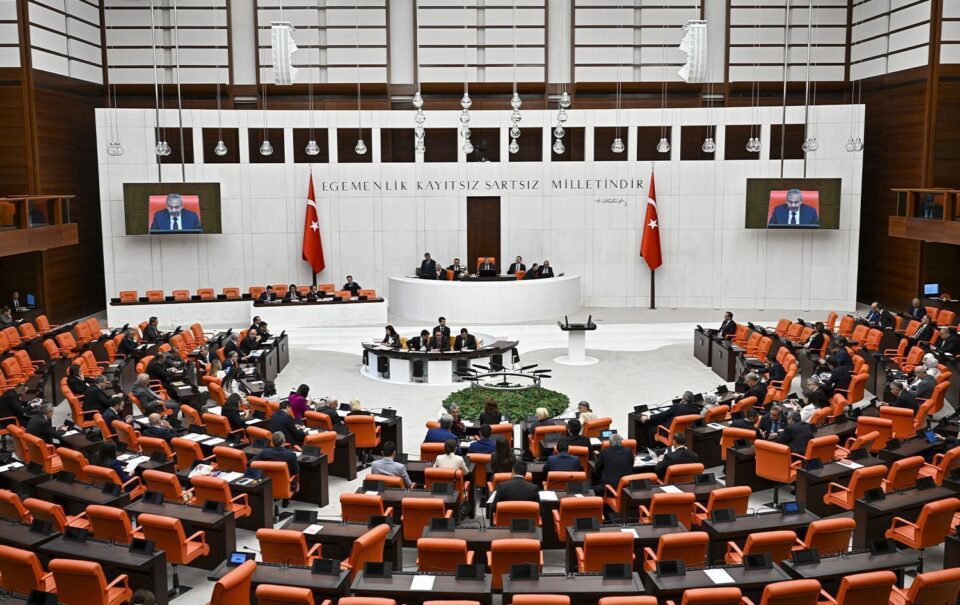Kurdish leaders have expressed strong support for Turkey’s new peace initiative while Turkish officials signal readiness for dialogue with unprecedented statements from both government and opposition figures, marking a potential turning point in the decades-long Kurdish issue. However, recent attacks and complex political dynamics pose challenges to the process.
President Masoud Barzani, speaking at the 10th Mesopotamian Medical Congress in Erbil, expressed optimism about the recent peace overtures. “What’s pleasing is that we recently heard there’s an initiative for the peace process in Turkey. We hope it succeeds, and no one creates obstacles for it,” he stated.
Kurdistan Region President Nechirvan Barzani, addressing the MERI Forum, emphasized the regional implications of the process. “As Kurdistan Region, we would be happy if the peace process in Turkey starts and reaches conclusion. This is about a nation, and our position is clear. Resolving this issue will help not only Turkey but also the region,” he said. However, he cautioned about the PKK’s role, noting it remains “a major problem for both Turkey and us” and called on the organization to “stop these actions and adopt a new policy” if it seeks a political solution.
The peace initiative has gained momentum with unprecedented statements from Turkish officials. MHP leader Devlet Bahceli, traditionally known for his hardline stance, surprised many by declaring, “A Turk who doesn’t like Kurds is not a Turk; a Kurd who doesn’t like Turks is not a Kurd.” More significantly, he suggested allowing imprisoned PKK leader Abdullah Ocalan to address parliament – a proposal previously unthinkable from the nationalist leader.
Turkish President Recep Tayyip Erdogan has also signaled openness to dialogue, stating, “This republic is also a republic of Turks and Kurds, a republic of all those who live on this nation’s soil.” He emphasized his government’s commitment to “completely remove the terrorism issue from our country’s agenda.”
The process faces complex challenges, including recent military tensions. Turkey conducted 19 strikes in various Kurdistan Region and other Kurdish regions recently. Talking to Kurdish media, international political researcher Dr. Sardar Aziz provides a multifaceted analysis of the current peace initiative.
“The Ankara attack at this time, which is the beginning of the peace process, is suspicious, although it might not have much impact on starting the peace process,” he explains. Aziz points to several strategic factors driving the initiative: “Erdogan wants to attract Kurdish votes for the constitution issue and doesn’t want his rival CHP to become the owner of reviving the peace issue with Kurds. Changes are happening in the region, especially changes related to Iran and Syria, all these are motivators for restarting the peace issue.” Particularly noteworthy is his observation about Ocalan’s situation: “Turkey doesn’t want Ocalan to die in prison and Erdogan considers attracting Kurdish votes important.” This analysis suggests the peace initiative is driven by a combination of domestic political calculations, regional dynamics, and practical considerations about Ocalan’s status.
The current peace effort differs from previous attempts, particularly the 2013-2015 process. It involves multiple stakeholders: the DEM Party in parliament, Ocalan in Imrali Prison, the PKK in Qandil, and Selahattin Demirtash in Edirne prison. Recent developments include discussions about transferring Ocalan to house arrest in Ankara and potential legal frameworks for the peace process.
Ocalan himself has signaled readiness for a solution, stating through his nephew Omar on October 24, “The isolation continues. If conditions allow, I have the theoretical and practical power to transform this situation from conflict and violence to a legal and political ground.” He has also conveyed two specific conditions through his nephew: the need for a guarantor state for the peace process (though no specific country was named) and the establishment of legal guarantees to provide a formal framework for the process, regardless of whether it’s called a peace process, brotherhood project, or otherwise.
Talking to Kurdish media, political analyst Hassan Ahmed Mustafa offers a deeper perspective on the constitutional challenges facing the peace process. “For resolving the Kurdish issue in Turkey, we can’t avoid discussing the first four articles of Turkey’s constitution. The first three constitutional articles constitute the core problem for Kurds, Alevis, and all of Turkey’s issues, while the fourth article explicitly prevents amending these three articles,” he explains.
Mustafa notes that the timing of this initiative is significant: “This new step comes after an election where Erdogan wasn’t fully successful, at a time when the Middle East map is changing, and following an urgent visit by the Kurdistan Region President related to regional security. The matter is sudden and very new.” He particularly emphasizes a crucial shift in Turkish politics: “Previously, because of MHP, Kurdish issue resolution couldn’t even be discussed, but now MHP itself has brought it up.” While acknowledging that the PKK won’t reject Ocalan’s words outright, Mustafa cautions that full compliance with Bahçeli’s conditions won’t be easy, highlighting the complex dynamics between various Kurdish political actors and Turkish authorities.
The initiative comes at a critical time of regional changes and follows significant diplomatic movements, including Kurdistan Region President’s urgent visit to Ankara. Constitutional obstacles remain a key challenge, particularly the first four articles of Turkey’s constitution that affect Kurdish rights and identity.
As this new phase unfolds, both Turkish and Kurdish leaders emphasize the need for practical steps beyond mere declarations. DEM Party co-chair Tuncer Bakirhan has called this a “historical test” for Erdogan, urging concrete actions to support the peace rhetoric. The success of this initiative could mark a significant shift in Turkish-Kurdish relations and regional stability, though observers remain cautiously optimistic given the complex web of political, legal, and security challenges ahead.
The Kurdish Globe

